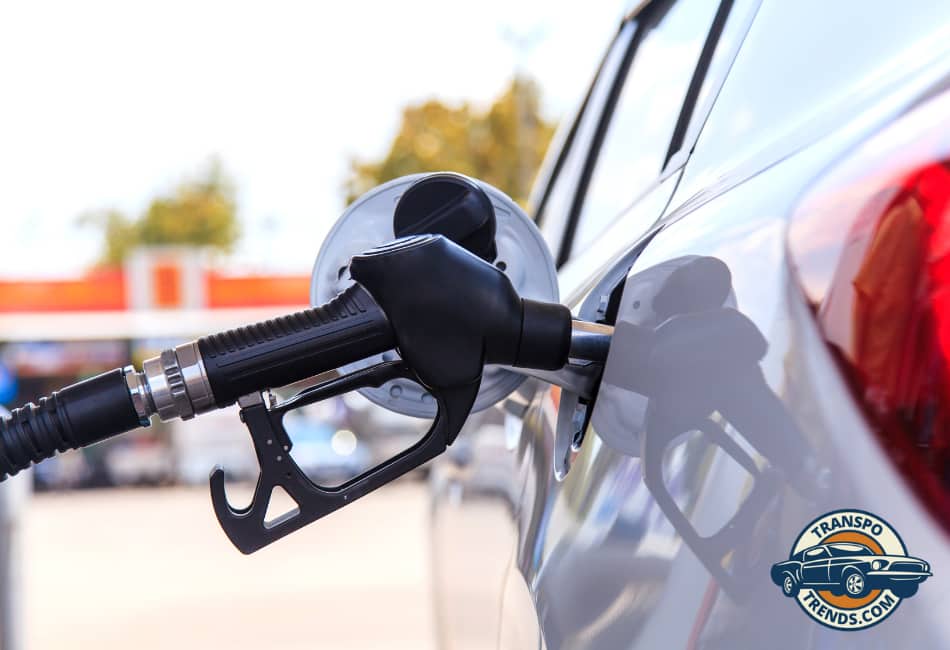Fuel efficiency isn’t just a financial consideration but an environmental imperative too. In our fast-paced world where mobility is necessary, learning how to reduce fuel consumption in petrol cars can significantly lessen environmental impact and save drivers considerable money over time.
This post will introduce and explore 19 straightforward strategies to conserve fuel, ranging from smarter route planning and vehicle load management to judicious use of fuel efficiency features and wise fuel choices.
By implementing these tips, you can contribute to a greener planet while improving your car’s performance and padding your wallet. Let’s dive in and discover how small changes in your driving habits and vehicle maintenance can make a massive difference.
How to Reduce Fuel Consumption in Petrol Car
Maintain Your Car
1. Regular Maintenance
- Keeping the engine tuned ensures that it operates at its most efficiently.
- Regular oil changes, spark plug replacements, and checking the timing belt can help maintain optimal performance and reduce fuel consumption.
- Replacing air filters, as recommended by the manufacturer, keeps the engine clean and running smoothly, leading to more efficient fuel combustion and less wasted gas.
- Consider checking your car’s wheel alignment once a year, as this helps reduce drag and save fuel.
2. Proper Tire Maintenance
- Maintaining the correct tire pressure reduces the vehicle’s resistance to motion, leading to less fuel consumption.
- Regularly check your tire pressure with a tire pressure gauge and adjust as needed.
- Regular alignment and balancing of tires can reduce the irregular wear and tear that lead to increased resistance while driving, saving fuel in the long run.
- Avoid overloading your car, as this puts additional strain on the engine and reduces fuel efficiency.
Driving Habits
3. Smooth Driving
- Gentle acceleration and deceleration can help maintain a steady speed, resulting in fewer sudden stops and starts, which can eat up fuel.
- Anticipating traffic flow avoids sudden stops.
- Be aware of traffic signals and patterns ahead of you to maintain a smoother driving style.
- Avoid revving your engine too much. This wastes fuel, pollutes the environment, and causes more wear and tear on the engine.
4. Use Cruise Control
- When on highways, use cruise control to maintain a consistent speed which can improve fuel efficiency.
- Avoid sudden acceleration and deceleration when using cruise control.
- Be aware of speed limits in different areas, as speeding can increase fuel consumption.
5. Avoid Idling
- Turn off the engine when parked for extended periods.
- Idling can waste a significant amount of fuel over time.
- Invest in a remote starter for your car to help warm it up and avoid idling.
- Preheating your vehicle before driving can also be an energy-efficient way to warm up the engine.
Route Planning
6. Shorter Routes
- Choosing the shortest route to your destination can significantly save on fuel.
- GPS and navigation apps can help identify the most efficient route.
- Plan your route in advance to avoid endless circles and wrong turns that can waste time and fuel.
- Additionally, avoid heavy traffic areas where possible.
7. Limited Freeway Driving
- High-speed driving on highways is more fuel efficient than low speeds in the city.
- However, freeway driving can cause high fuel consumption due to the high resistance of the wind.
- Try to limit your freeway driving and opt for surface streets when possible.
8. Avoid Traffic
- Use navigation apps to avoid congested routes.
- Stop-and-go traffic can significantly increase fuel consumption.
- Consider leaving earlier or later than usual to avoid peak hours.
- Try carpooling with friends or family for even more fuel efficiency.
Vehicle Load
9. Lighten the Load
- Remove unnecessary items from the trunk.
- Extra weight in your vehicle can increase fuel consumption.
- Consider consolidating heavier items with lighter ones to reduce the overall weight.
10. Roof Racks and Carriers
- Remove roof racks when not in use.
- These add-ons can create aerodynamic drag, causing your vehicle to consume more fuel to maintain speed.
- If possible, avoid using roof racks and carriers.
Fuel Efficiency Features
11. Eco Mode
- If your car has a special ‘eco’ mode, make use of it.
- This feature adjusts the car’s systems for maximum fuel efficiency.
- Eco mode can be used when driving at low speeds and in city traffic.
12. Overdrive
- For cars with automatic transmission, using overdrive gears on highways can reduce engine speed, thus saving fuel.
- Most transmission systems come with an ‘overdrive’ switch to help activate this feature.
- Activate overdrive when driving on highways or open roads.
Fuel Choices
13. Quality Fuel
- Using high-quality fuel helps maintain engine efficiency.
- Quality fuel burns cleaner and more efficiently, reducing emissions and improving fuel economy.
- Check your vehicle manual for recommended fuel grade and always use the highest quality you can find.
14. Avoid Aggressive Fuelling
- Gradual refueling prevents fuel vapor loss.
- Overfilling or rapid filling can lead to wastage due to fuel overflow or vapor escapes.
- Use the pump’s ‘auto-stop’ feature to avoid overfilling and reduce wastage.
- More frequent but smaller refills will help you save fuel in the long run.
Aerodynamics
15. Close Windows
- Close windows when driving at higher speeds.
- Open windows can increase drag, forcing the car to use more fuel to maintain speed.
- For maximum fuel efficiency, use air conditioning instead of opening windows.
16. Remove Exterior Accessories
- Unnecessary exterior accessories like spoilers and flags can increase drag, consuming more fuel.
- Remove these accessories when not in use to reduce aerodynamic drag.
- Keeping the car body clean and free of dirt, mud and other substances can also reduce drag.
Proper Cooling
17. Use A/C Wisely
- Use the A/C moderately or utilize the car’s ventilation system.
- A/C use can significantly increase fuel consumption.
- If you need to use A/C, try setting it at a lower temperature and avoid unnecessary idling.
18. Park in Shade
- Parking in shaded areas reduces the need for excessive cooling, saving on fuel usage by the air conditioner.
- If you cannot park in the shade, use sun shades on the window to reduce heat buildup.
- Even a few simple steps like these can add up and save much fuel over time.
19. Carpooling and Trip Consolidation
- Carpool with colleagues or friends or plan your trips in a way that reduces individual journeys.
- This saves on fuel usage and helps reduce overall carbon emissions.
- You could also consider using public transportation if available.
- Many carpooling services are available
Conclusion
In summary, we have explored 19 diverse strategies to reduce fuel consumption in petrol cars. These range from adopting better driving habits such as avoiding excessive idling, maintaining an appropriate speed, and using overdrive gears on highways to making smarter choices in fuel and vehicle maintenance with high-quality fuel usage and regular oil changes.
Aerodynamics also has a key role in fuel efficiency, and simple steps like closing windows at higher speeds and removing unnecessary exterior accessories can contribute to fuel saving.
Cooling methods, too, impact fuel consumption; thus, using A/C wisely and parking in the shade could aid in reducing fuel usage. Lastly, carpooling and trip consolidation are valuable steps toward sustainable living.
These strategies emphasize that even minor changes in our daily routines and driving habits can lead to significant fuel savings, promote a more eco-friendly lifestyle, and ultimately contribute to a greener environment.
Every effort counts, and each one of us can make a difference. We encourage you to apply these tips in your life to save money on fuel costs and to play your part in conserving our shared environment. Remember, the journey to a more sustainable future begins with you.

